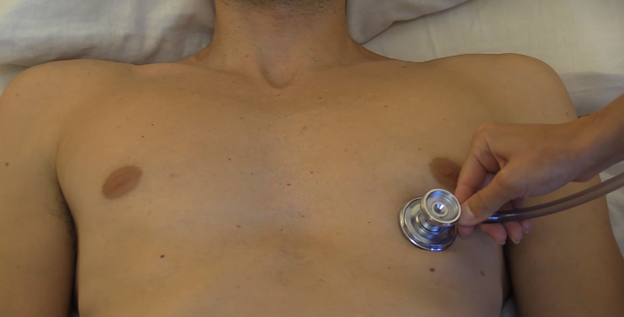The nurse should evaluate that a teenager understands when to take prescribed pancreatic enzymes when the client makes which statement?
"I will take the enzymes with all my meals and snacks.”.
"I only need to take the enzymes with my meals.”.
"The enzymes are only necessary when I am experiencing complications.”.
"I will take my enzymes at night before I go to bed.".
The Correct Answer is A
"I will take the enzymes with all my meals and snacks.”.
Choice A rationale:
Taking pancreatic enzymes with all meals and snacks is the correct approach. Pancreatic enzymes are essential for aiding digestion and should be taken whenever food is consumed to ensure proper nutrient absorption.
Choice B rationale:
Taking enzymes only with meals is insufficient. Snacks also require enzyme supplementation for effective digestion.
Choice C rationale:
Waiting for complications before taking enzymes is incorrect. Enzymes are necessary for every meal and snack to prevent malabsorption and digestive issues.
Choice D rationale:
Taking enzymes at night before bed is not recommended. Enzymes are needed when food is present in the stomach, which typically occurs during meals and snacks, not before bedtime.
Nursing Test Bank
Naxlex Comprehensive Predictor Exams
Related Questions
Correct Answer is D
Explanation
Choice A rationale:
While addressing the client's food preferences is important for their overall care, pain management takes priority during a vaso-occlusive sickle cell crisis to alleviate suffering and prevent complications.
Choice B rationale:
Assessing the client's knowledge about the illness is significant for education, but pain relief should precede this assessment to promptly address their distress.
Choice C rationale:
Obtaining a urine specimen is a relevant diagnostic step, but pain management should be initiated before further assessments or interventions.
Choice D rationale:
Administering pain relief medication is the immediate nursing priority. Sickle cell crises are excruciating, and timely pain management helps alleviate suffering and improve the client's well-being.
Correct Answer is A
Explanation
Choice A rationale:
Monitoring the apical pulse is of the highest priority for a patient with a myelomeningocele preoperatively. A myelomeningocele is a neural tube defect that can lead to neurologic complications. Monitoring the apical pulse every hour helps detect any signs of cardiac distress or neurological compromise, allowing prompt intervention.
Choice B rationale:
Maintaining the patient in a prone position is not the priority in this situation. While positioning can be important, monitoring vital signs takes precedence over positioning.
Choice C rationale:
Providing sensory stimulation is important for the patient's overall well-being, but it's not the highest priority preoperatively. Monitoring vital signs and assessing for potential complications take precedence.
Choice D rationale:
Keeping a strict record of the patient's intake and output is important for general care, but it's not the highest priority in the immediate preoperative period. Monitoring vital signs and detecting signs of distress come first.

Whether you are a student looking to ace your exams or a practicing nurse seeking to enhance your expertise , our nursing education contents will empower you with the confidence and competence to make a difference in the lives of patients and become a respected leader in the healthcare field.
Visit Naxlex, invest in your future and unlock endless possibilities with our unparalleled nursing education contents today
Report Wrong Answer on the Current Question
Do you disagree with the answer? If yes, what is your expected answer? Explain.
Kindly be descriptive with the issue you are facing.
